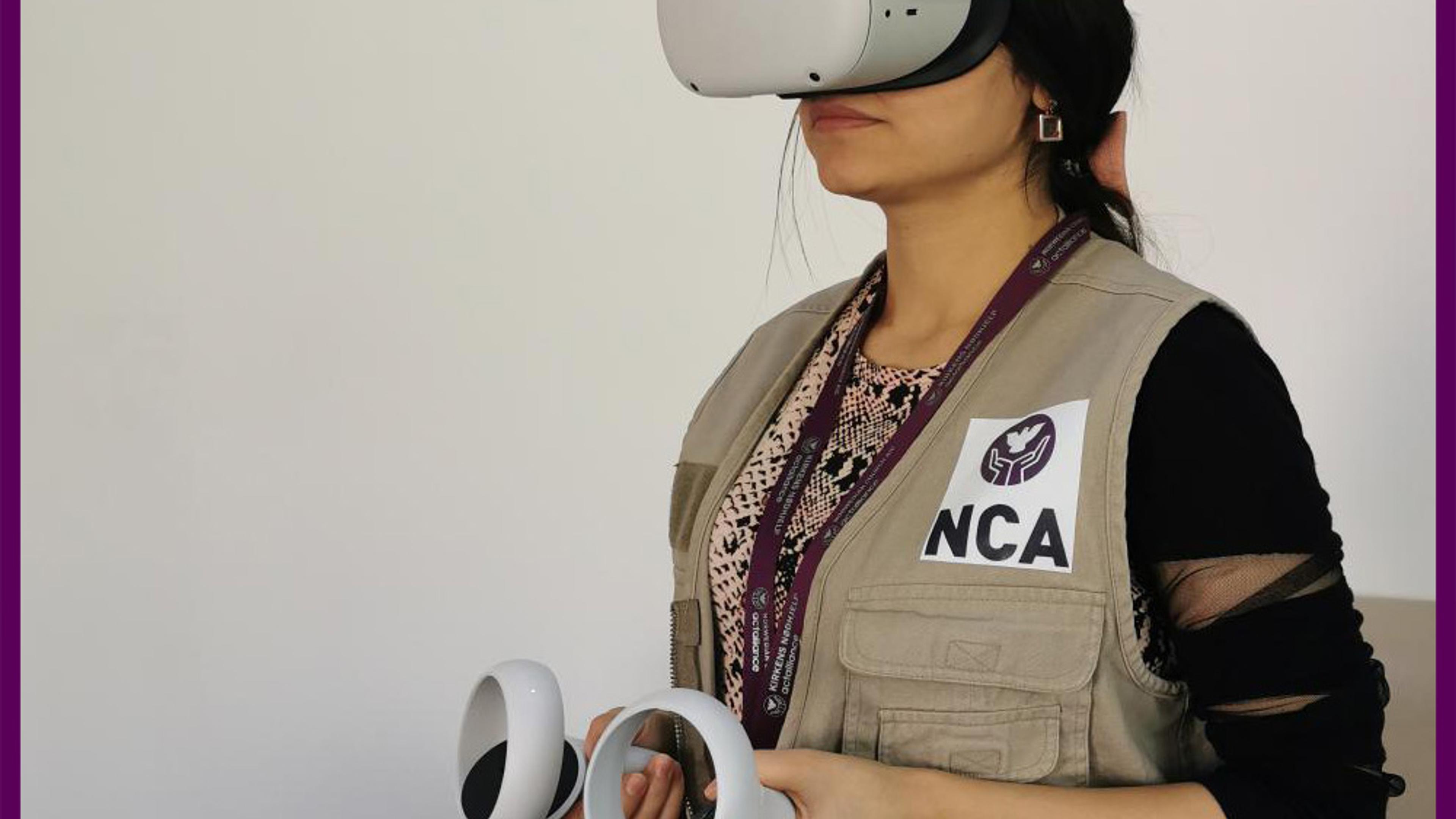Virtual Reality as a Catalyst for Resilience and Recovery in Humanitarian Settings
 © Norwegian Church Aid
© Norwegian Church AidScope of the project
The project focused on addressing violence against women and girls and its detrimental effects on the mental health and psychosocial well-being, particularly in humanitarian contexts where access to specialized mental health and psychosocial support services is severely limited. Recognizing the urgency of this issue, Norwegian Church Aid (NCA) aimed to enhance the quality and variety of care available to survivors, fostering their healing and reintegration into their communities.
Supported by Innovation Norway, NCA embarked on an innovative project to evaluate the potential of virtual reality (VR) as a therapeutic tool for survivors. This project involved collaborating with two private sector companies, Helium and Fornix, to develop and test VR-based psychosocial interventions in northern Iraq.
Helium provided an existing mental fitness tool that integrates neurofeedback technology to offer nature-based VR meditation experiences. NCA implemented a structured seven-session group module using Helium's tool in their Women & Girls Safe Spaces, achieving full participant retention, universal satisfaction, and notable distress reduction. Fornix, on the other hand, developed a bespoke interactive application specifically for NCA's programming. This solution featured a private room for individual activities and a communal area for multiplayer interactions, each designed to support the therapeutic needs of survivors. Initial integration of Fornix's solution into one-on-one case management showed positive responses, with ongoing data collection to further evaluate its efficacy.
Lessons learned
- Innovative Solutions Require Adaptation: The successful implementation of VR-based interventions in a humanitarian context highlighted the need for tailored solutions that consider the unique challenges and needs of survivors. The collaboration with private sector partners demonstrated the importance of flexibility and customization in developing effective therapeutic tools.
- Participant Engagement and Retention: The full retention and high satisfaction rates observed in the Helium groups underscore the potential of immersive VR experiences to engage participants and sustain their involvement in therapeutic programs. This suggests that VR can be a compelling medium for delivering psychosocial support.
- Holistic and Individualized Support: The initial positive feedback for the Fornix application emphasized the value of providing a mix of private and communal therapeutic activities. This approach supports individualized care while fostering a sense of community and shared healing among survivors.
- Ongoing Evaluation and Adaptation: The project underscored the necessity of continuous data collection and feedback loops to assess the efficacy of new interventions. This iterative process allows for timely adjustments and improvements.
Lessons Learned from the Market Dialogue Phase, the Needs Assessment Phase and the Request for Proposals & Contracting Phase can be found on the Pilot project’s website: https://www.kirkensnodhjelp.no/en/about-nca/for-contractors/innovation/gbv/#stop0
The Way Forward
Building on the insights and successes of this project, NCA is committed to further refining and expanding the use of VR-based interventions in their GBV programming. Key steps include:
- Scaling Up: NCA plans to scale up the implementation of the Helium and Fornix VR solutions across more Women & Girls Safe Spaces and other relevant settings in humanitarian contexts, ensuring broader access to these innovative therapeutic tools.
- Enhancing Training and Support: To maximize the impact of VR-based interventions, NCA will invest in training for GBV staff, equipping them with the necessary skills to effectively integrate these tools into their work with GBV survivors.
- Strengthening Partnerships: NCA will continue to explore avenues of collaboration with private sector partners, leveraging their expertise in technology and innovation to develop new and improved solutions for GBV survivors.
- Comprehensive Evaluation: Ongoing research and evaluation will be a cornerstone of NCA’s approach, enabling the organization to systematically assess the outcomes of VR-based interventions and make data-driven decisions for future programming.
By embracing innovation and evidence-based practices, NCA aims to enhance the support available to GBV survivors, ultimately empowering them to heal, reconnect with their communities, and drive social change.
Project partners
NCA headquarters, NCA Iraq Country Office, Helium and Fornix.